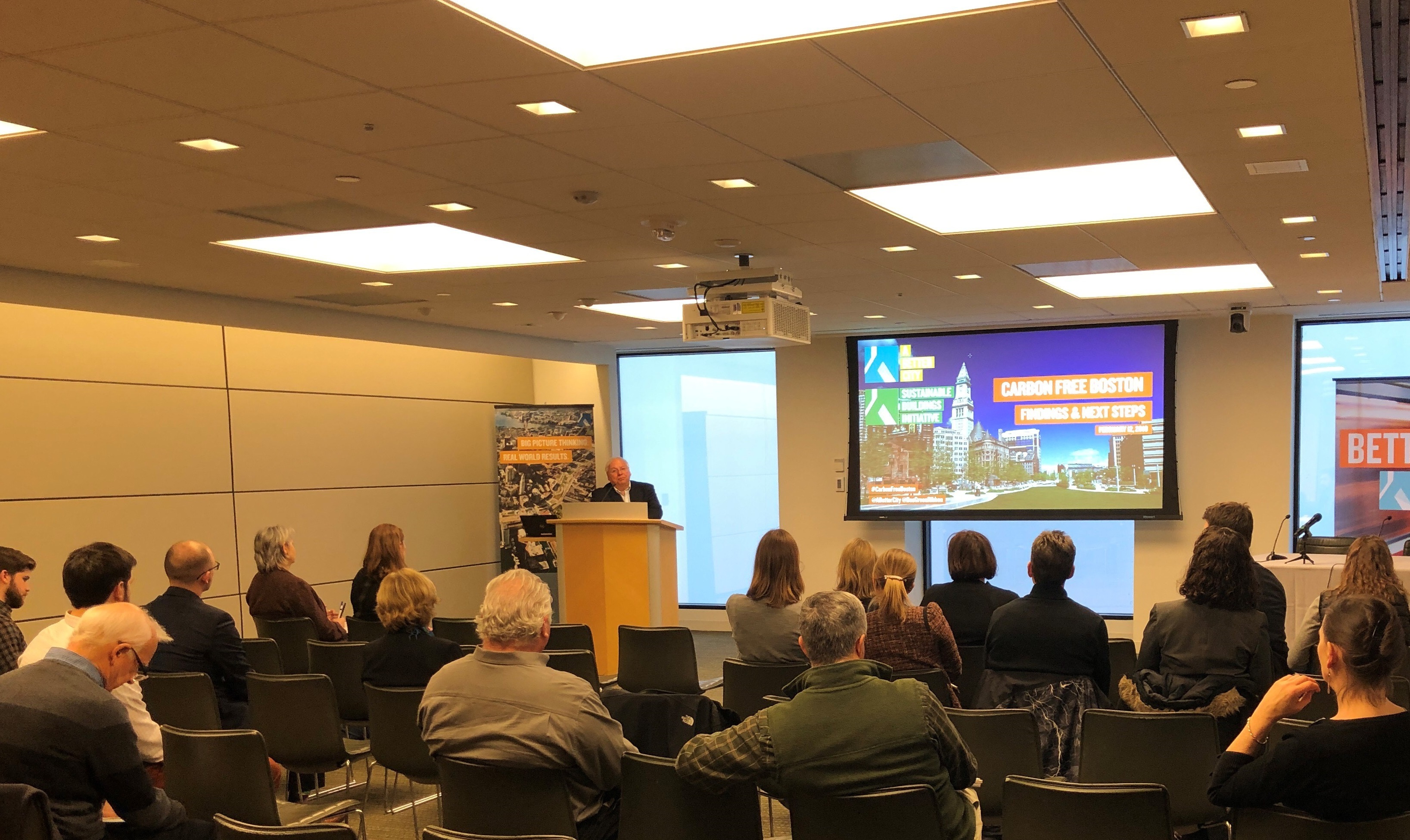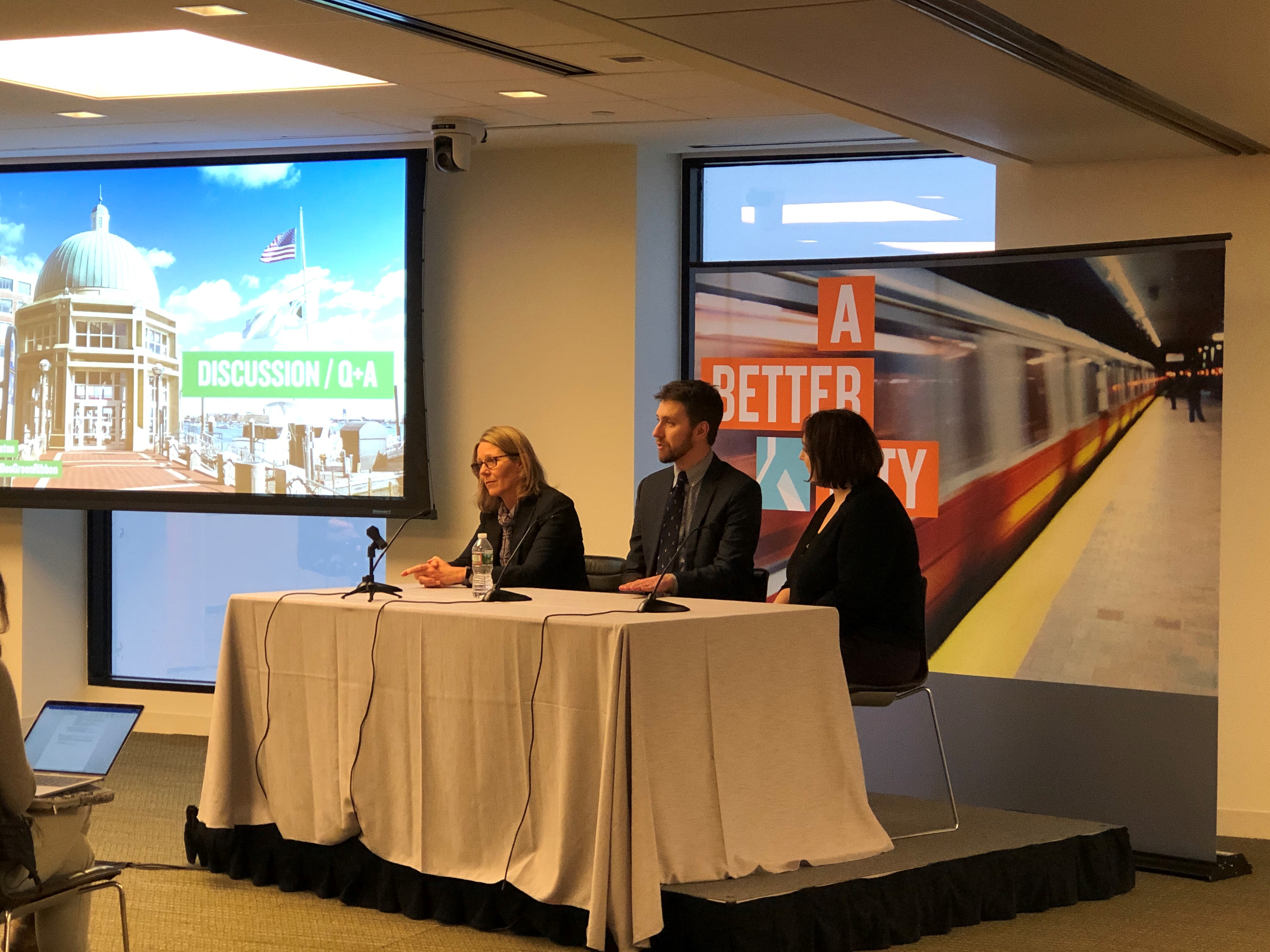Carbon Free Boston: Findings & Next Steps Recap
February 15, 2019
On February 12, A Better City hosted a meeting about the findings from the recently released Carbon Free Boston report, and the next steps the City is planning to build on these findings. The Boston Green Ribbon Commission was asked by Mayor Marty Walsh to undertake this report. They selected the Institute for Sustainable Energy at Boston University to conduct the deep research, modeling, and analysis of the buildings, electric power, transportation, and waste sectors to understand their greenhouse gas emission contributions and potential pathways to reach the City’s carbon neutrality goal by 2050.

Amy Longworth, Director of the Boston Green Ribbon Commission briefly framed the Carbon Free Boston report before introducing Michael Walsh, technical lead of the Carbon Free Boston project from the Institute of Sustainable Energy at Boston University. To reach the city’s carbon neutrality goals, Michael said the findings identified three mutually reinforcing strategies that must be pursued together: reducing energy demand and maximizing energy efficiency; electrifying all energy services to the extent practicable and purchasing 100% clean energy. He also presented the sector-specific strategies and policy options for reaching carbon neutrality by 2050 identified in the report. Alison Brizius, Director of Climate and Environmental Planning at the City of Boston then spoke about how these findings will be built upon in the City’s Climate Action Plan update. As part of this update, roadmaps for four key projects are being undertaken on an accelerated timeline: deep energy retrofits for existing buildings; the shift to net zero carbon development; the transition to electric vehicles; and expanding and improving mobility options. There will be many opportunities for stakeholder engagement throughout this process.

During the discussion that followed, the speakers were asked about municipal aggregation, the split incentive challenge for owners/tenants conducting a major retrofit, the cost of electrifying large systems which are not yet cost-effective without utility / city / state incentives, and the report’s omission of the carbon emissions associated with lifestyle choices made at the individual and household levels. There followed a discussion on the effectiveness of a carbon tax and other economic incentives to promote less fossil-fuel intensive consumption and a discussion on the importance of government and utility coordination.
Presentation slides can be found here. Watch the event here.




